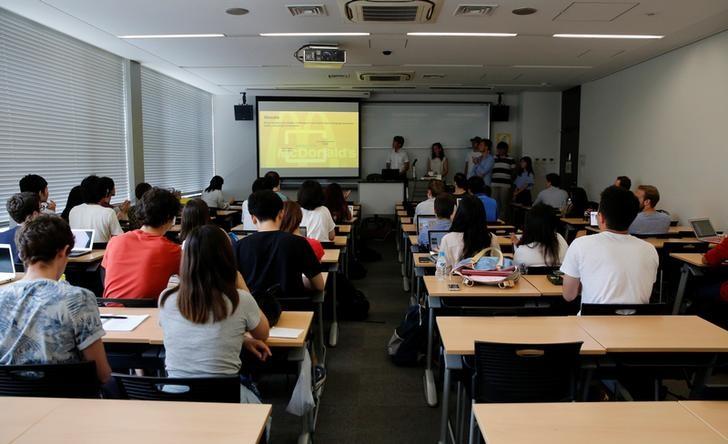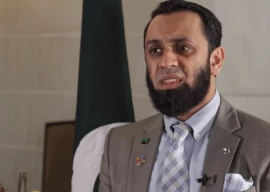
Covid-19 puts young Pakistanis’ dreams on hold
Many prospective students hoping to study abroad this year have been forced to defer admissions
KARACHI: A foreign education is something most Pakistanis, young and old, covet. As they work hard in school, young Pakistanis hope to be accepted in prestigious institutions abroad, both for the tag of being foreign-educated and for the experience of living in another country. Their parents often set their life savings aside in hopes that studying in countries like the US, UK, Europe, Canada or Australia will give their children a leg up when it comes to starting a career.
The novel coronavirus, for now, has poured cold water on the dreams of Pakistanis that were applying for a place in foreign universities. In the absence of clear post-Covid-19 visa policies, the embassies of most countries appear not to be taking any visa applications, even for students with acceptance letters. And with many foreign universities hinting at offering online classes to out-of-country students, many Pakistani applicants are thinking of deferring their higher education for at least a year.
“There has been a sharp decline in the trend of enrolment in foreign universities this year,” said Humail Khan, a well-known education counsellor based in Karachi. “We have been monitoring the situation since March and at that time, we expected the situation would return to normalcy in about six months. Now, it seems, it will last the entire year at least.”
Part of the reason enrolment is down is due to the offer of online classes by many foreign universities. “At first, the universities’ administrators were confident that things would be fine by September. While Australian universities start their session earlier, in July, universities in the UK, US and Canada start their sessions in September anyway,” Humail said. “In April, the universities, especially the ones in Australia, hinted that they may start the session on time with online classes before starting regular classes in October.”
“Now, even that appears unlikely and many universities are encouraging foreign students to take online classes for at least the rest of the semester,” he told The Express Tribune.
According to Humail, Canada for now appears to be the most reassuring destination for students wishing to study abroad. “Canadian universities have announced that they will offer no more than half a semester’s worth of courses online before inviting students to the country to continue their education,” he said. “On the other hand, 70 to 80 per cent of UK universities have made it clear that foreign students wishing to enrol with them will have to take online classes.”
“This has created a major problem for both prospective students and their parents,” Humail said. “The big question many of them have is what is even the guarantee that the students who start online classes will be invited to study in the country the campus is located in four months later. They wonder if they’ll even get a visa later and ask what the value of an online education be if they are forced to take all classes long distance.”
“On top of that, many foreign universities are still charging full price,” he added. “Only a few have shown flexibility, by offering the option of paying only for the modules they are taking online for now. Others are not budging from their fee structure, which includes things like housing and insurance which the students don’t need while taking online classes.”
The consultant added that even if the universities were to send invitation letters right now, there is no way for students to apply for a visa. “Most embassies are closed and UK hasn’t even announced a post-Covid-19 student visa policy for Pakistan,” he said.
Speaking to The Express Tribune, students who were planning on going abroad to study this year all agreed they would rather wait than take online classes from Pakistan.
“Both my former classmates and I agree that being at the campus matters as much as the education,” said Farheen, who recently cleared A-Levels. “Without being there, you will not have the opportunity to interact with and make friends with other students from all over the world,” she said. “On top of that, the fees for online classes are too high.”
Another student, Shah Mir, who has been accepted in a chemistry programme at a London university, said the practical nature of his field made it even more important he has access to university lab facilities. “That’s why I chose to defer my admission for a year.”
Ammar Raza, who was planning on pursuing a computer engineering degree in the US said he had applied for a visa before the US embassy closed but would defer his admission if the visa did not arrive. “It is much better to go and study, even if the choice of online classes is there,” he said.















COMMENTS
Comments are moderated and generally will be posted if they are on-topic and not abusive.
For more information, please see our Comments FAQ